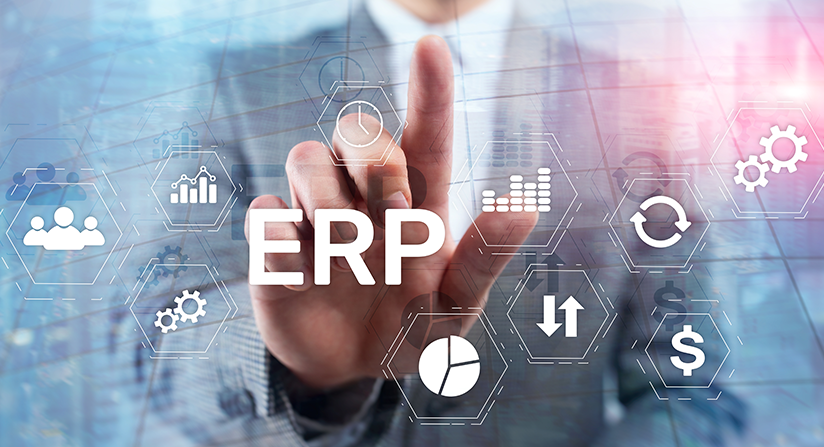For every business owner, selecting an ERP solution is quite an expensive and labor-intensive affair. ERP is software that seamlessly integrates organizational data into a single system. From inventory management to human resources, quality control to production and supply chain, it addresses all aspects of a business.
When we talk about different categories or types of Enterprise Resource Planning software, they differ per the unique business requirements. Some organizations prefer to access this software remotely from handheld devices, here, cloud ERP is preferable. If you prefer to implement it on local devices, on-premise ERP is the best choice.
ERP for Small Businesses
Whether you deal with production or wholesale and distribution of goods, ERP covers all business aspects and ensures that operations are performed at the right time, in the right manner, and by the right personnel. It lets you keep a track of all activities, reports, and resources. It is important for any size business and small businesses are finding ERP an essential element to help them to be competitive and grow.
ERP for Large Organizations
Big organizations have to deal with a huge volume of data, multiple departments, many resources, a multitude of machines, and much more. ERP keeps operations flourishing. With an ERP, you don’t need to manually enter data. Built-in firewalls and resources ensure data security, improves the reporting process, and saves time and money while increasing production levels.
Companies with millions and billions of turnover have to struggle to achieve their desired results. They manage many things at the same time. ERP ensures these businesses perform well across the organization. 80% of Fortune 500 companies use SAP software to manage their critical business operations.
The benefits of enterprise resource planning software remain the same for a large company or a startup. When implementing an ERP, you have two options – on-premise and cloud ERP. With evolving technology, industries nowadays prefer to invest in cloud ERP software that ensures growth and advances for the coming years.
Cloud ERP
Cloud ERP is an ideal fit for growing organizations that are seeking flexibility, agility, and profitability. The reasons why businesses are moving to cloud ERP are multiple:
– It saves time and money
– Anytime, anywhere availability of data – good for employees working remotely
– Secure – all of your business data is stored in highly secure datacenters
– Scalable as per the growth of your company
On-premise ERP
On-premise ERP is hosted locally on your computer systems. On-premise implementation comes with its own set of pros and cons. It is said to be more customizable and economical and you have complete access to your data. Let’s put it concisely here:
– Less dependency on the vendor
– It is priced under a one-time perpetual license fee based on the number of users
– It has a limited ongoing cost
– It is easily customized
Horizontal ERP
The horizontal attributes of an ERP solution cover the most basic operations of the business – finance, sales, marketing, supply chain, human resources, accounting, and more. These are the fundamental operations of any business without which they cannot excel.
Industry Vertical ERP
Industry vertical ERP ensures is geared towards a particular industry including consumer industries, discrete industries, service industries, public services industries, and so on. ERP vendors focus on these niche industries and customize their software as per their specific functionality needs.
Open Source ERP
The source code of open source ERP is publicly available which eliminates license and maintenance fees. Most larger companies use this sort of ERP software as it is cheaper and easier to upgrade.
Licensed ERP Solutions
Primarily, there are two types of licensing models in ERP, perpetual and subscription-based. It depends on how you prefer to pay the vendor whether every month or a one-time lump sum amount. Licensed ERP is proprietary software given under a licensing agreement to authorized users. Here, the source code is not shared with the public, and therefore, without taking the license no one can change or look at it.
ERP selection is quite an intimidating and time-consuming process that should be done after analyzing the needs of your business. If you have any further questions feel free to contact us.
Download the eBook titled “Selecting ERP Software for the Manufacturing Industry” to read in detail about things to consider before selecting a manufacturing ERP solution. Download now.
Follow Us










